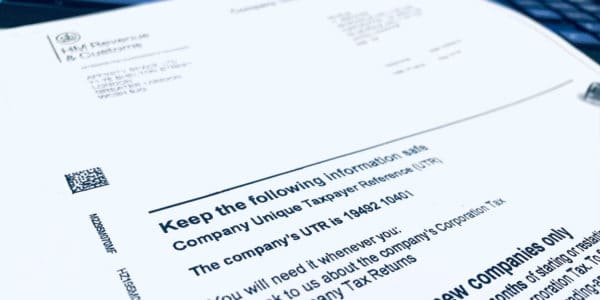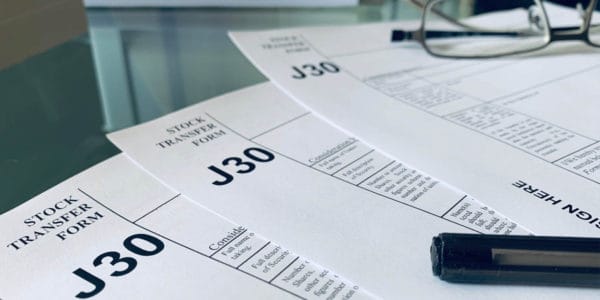The last few years have seen a surge in the number of home-based businesses.
Increased flexibility, online platforms, and significant cost savings mean more and more entrepreneurs are choosing to set up businesses from the comfort of their homes.
If you’re thinking about running a business from home, you may still be liable for business rates for the part of your home that you’re using for work-related activities. This is in addition to the Council Tax you pay for the domestic part of your property.
In this post, we’ll explore whether business rates apply to you when operating your business from home. Let’s get started.
Do I need to pay business rates?
Whether or not you will need to pay business rates when operating your business from home will depend on the nature of your business and how your home is used as a part of it.
Typically, you will not need to pay business rates if:
- You only use a small portion of your home for your business, such as a spare bedroom as an office
- You sell goods by post
However, the guidance suggests you’ll need to pay business rates if:
- Your property is part business and part domestic, for example, if you live above your shop
- You sell goods or services to people who visit your property
- You employ other people to work at your property
- You’ve made changes to your home for your business, for example, converted a garage into a hairdressing salon
You should contact the Valuation Office Agency (VOA) to find out if you’ll need to pay business rates for your home business. If you live in Scotland, you’ll instead need to get in touch with your local assessor.
The VOA or your local assessor will consider a variety of factors, including how you operate your business and if any special modifications have been made to your property to facilitate homeworking.
Some common examples of homeworkers who will need to pay business rates might include a takeaway restaurant, a nail technician or beauty therapist who has customers to their home for appointments, a personal trainer who’s converted their garage into a gym, or a marketing consultant who employs a team that works from the same home-based office.
It’s important to note that Council Tax is classified as an independent payment separate from business rates, and therefore it will still be payable alongside this.
How to avoid business rates
If you run an online business that doesn’t involve converting a large part of your home to facilitate your work activities, then it’s likely you will be exempt from paying any business rates.
In some cases, depending on the extent of your commercial activity and the size of your workspace, you may be eligible for a reduction. For example:
Small Business Rates Relief
This relief scheme provides discounts or exemptions on business rates for eligible small businesses, including home-based businesses.
You can apply for small business rate relief if:
- your property’s rateable value is less than £15,000
- your business only uses one property – you may still be able to get relief if you use more
The specific criteria for eligibility can vary by region, but generally, businesses with a low rateable value or those operating from small premises are entitled. Contact your local council to find out if you’re eligible and how you can claim this relief.
Rural Rate Relief
If your home business is in an eligible rural area with a population below 3,000 people, you may be able to claim rural rate relief. For example, if you run a food shop or post office and it is the only one in your village, with a rateable value of up to £8,500, you may be exempt from business rates.
You should contact your local authority to see what business rate relief you may be entitled to claim.
How to register to pay business rates
If you need to pay, you will be sent a business rates bill by your local council in either February or March of each year. The amount shown on this bill will include the business rates you owe for the coming tax year. Usually, it can be split into instalments in the same way as your Council Tax bill.
The amount payable will depend on the rateable value of your property, which is calculated by the VOA. If you think the rate you’ve been assigned could be wrong, you can query this and appeal. Your business rates will be paid to your local council, which can be done over the phone, by direct debit, at a Post Office, or by BACS.
If you are eligible for business rate relief, you should still complete the same application process. While some schemes may be applied automatically, it is always better to confirm and ensure that you receive the appropriate relief.
Final thoughts
Understanding business rates when running a business from home is crucial for home-based entrepreneurs. While in many cases you are likely to be exempt, it is always advisable to check with your local authorities and confirm your rights to exemption or relief.
We hope this post has helped provide some clarity on business rates for home-based businesses. If you have any questions, please leave a comment below and we’ll come back to you.
Please note that the information provided in this article is for general informational purposes only and does not constitute legal, tax, or professional advice. While our aim is that the content is accurate and up to date, it should not be relied upon as a substitute for tailored advice from qualified professionals. We strongly recommend that you seek independent legal and tax advice specific to your circumstances before acting on any information contained in this article. We accept no responsibility or liability for any loss or damage that may result from your reliance on the information provided in this article. Use of the information contained in this article is entirely at your own risk.












Join The Discussion